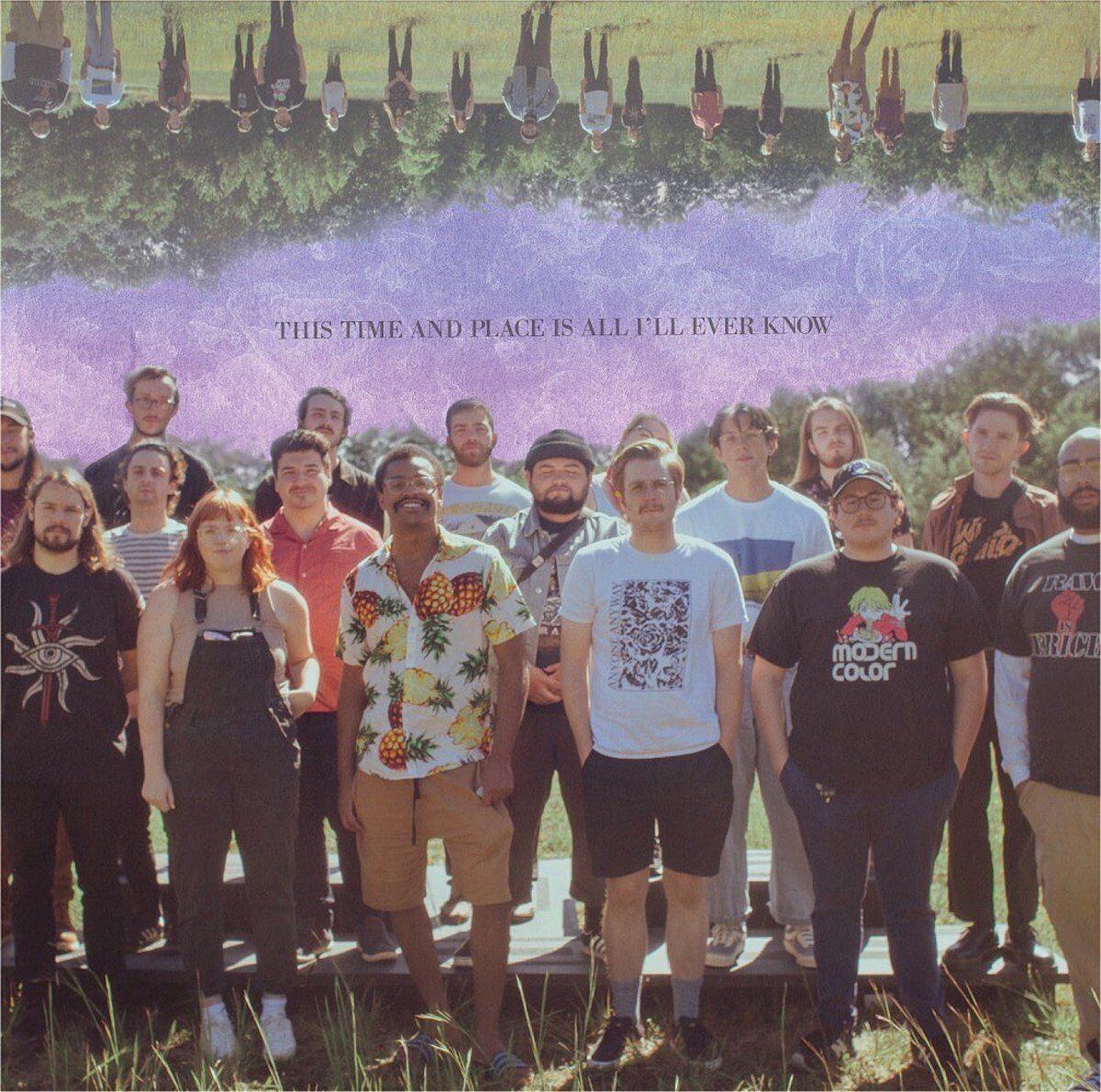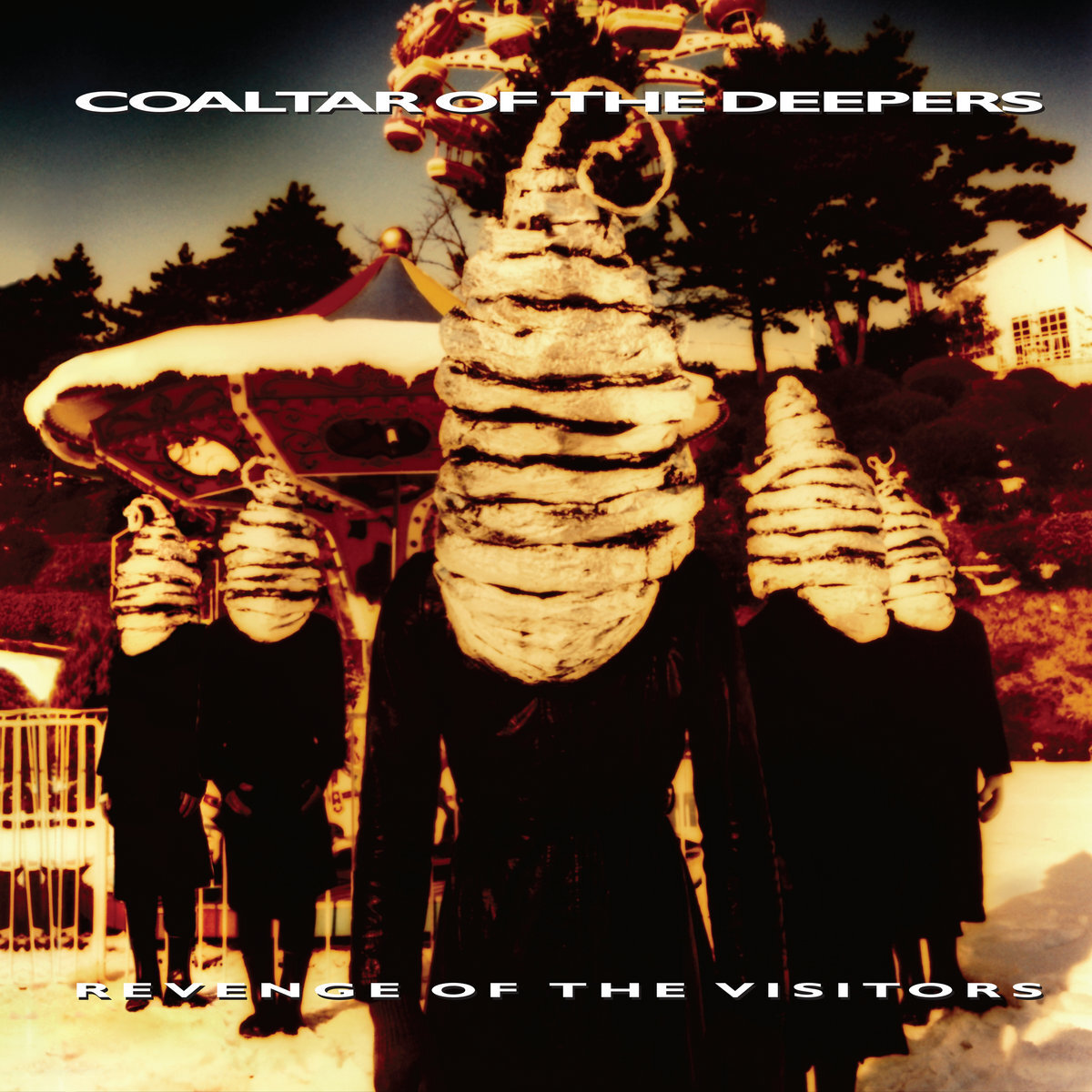The Best of March 2021
/Here are my favorite albums and EPs released in the month of March. This is probably the most emo collection of releases I’ve ever written about in any monthly roundup, so consider yourself warned.
Tigers Jaw - I Won’t Care How You Remember Me
Hopeless Records
The day before Tigers Jaw released their sixth studio album, I published a piece laying out the band’s position as both a legacy emo act and as artists who are constantly growing. That article focused primarily on my history with Tigers Jaw, specifically their breakthrough self-titled album that so many fans hold up as a landmark of the emo genre. The band’s output since then has ranged from solid to excellent, but nothing since 2008 has quite hit the same melancholic feelgood tone as their sophomore album… until now. Asking bands to make the same album over and over again is a fruitless (and unfulfilling) prospect for both parties, but on I Won’t Care How You Remember Me, the Pennsylvania four-piece managed to create a record that’s as catchy and triumphant as the album that so many fans consider their “best.” The release opens with an acoustic introduction that slowly draws you in before bottoming out into a fully-fledged pop-punk banger. The album’s front half is stacked singles all bearing sticky choruses, hard-hitting guitars, and glowing keys. Whether it’s the beguiling “Cat’s Cradle” with its siren song synth or “Hesitation” with its sunny springtime riffage, the album never lets up for a second. Even the back half of the record shakes things up with spitfire deliveries and a stellar closer, all of which seem ready to soundtrack springtime adventures and sunny hikes. A return to form in the best way possible.
Biitchseat - I’ll Become Kind.
Refresh Records
I’ll Become Kind is a heartfelt EP about the vastness of emotion and the constantly-shifting nature of relationships. While those topics sound complex and heavy in theory, Biitchseat has a way of making these amorphous subjects sound as light and easy as talking to a childhood friend. Lead single “Anti-Depressed” features a high-flying chorus made up of conflicting feelings. Perfectly representative of the band’s style, “Anti-Depressed” is one of those songs that’s carefree and singable until you actually sit down and listen to the words. With a style that feels inspired by fellow Ohioans Snarls and Sonder Bombs, the four tracks on I’ll Become Kind act as a reminder that in order to better ourselves, sometimes we have to take a long, hard look at the bad stuff. Then it’s off to the skatepark.
Home is Where - I Became Birds
Knifepunch Records
Somewhere between the Bermuda Triangle of Neutral Milk Hotel, Snowing, and Bob Dylan lies Home is Where. The album(?) opens and closes with a rustic campfire guitar, but is packed with horns, harmonica, violin, and more on top of all the usual guitar, drums, and bass. As lead singer Brandon MacDonald’s nasally yelp guides the listener along each dynamic track, the topics range from lighting cops on fire to assassinating presidents. For me, the heart of the album comes in the form of “Sewn Together From the Membrane of the Great Sea Cucumber,” where a steady guitar pairs with an escalating drum build. At the same time, a group chant repeats, “look at all the dogs! / look at all the dogs! / I wanna pet every puppy I see!” before throwing to an old-school screamo breakdown. It’s both charming and unexpected, a violent roller coaster of emotions that feels like it’s one screw away from falling apart at any moment. There are also harmonica hoe-downs, snappy pop-punk cuts, and hard-charging Dogleg-like passages that sound tailormade for driving down the highway at 90 miles an hour. Each consecutive minute of I Became Birds keeps you guessing. You never know whether the song is about to devolve into a tappy emo anthem or a high-pitched screamo tantrum. Easily the best emo release of the year so far.
glass beach - alchemist rats beg bashful (remixes)
Run For Cover Records
Much like 100 gecs’ Tree of Clues, glass beach’s alchemist rats beg bashful is a victory lap. The hour-plus remix album sees the proggy emo wizards handing over their debut album to a host of collaborators and conspirators from every genre under the sun. The results range from faithful recreations, ecstasy-fueled EDM, and Daft Punk-indebted house… and that’s just the first three songs. For what could have easily been written off as “just” a remix album, alchemist rats feels like a genuine celebration. It feels like a band finding their community, raising them up, and rallying around each other, fans included. The diversity of sounds found on this record is a testament to both the skills of the artists remixing the songs and the brilliance of the source material. Plus there’s a Dogleg contribution, so I was sold before I even hit play.
Riley! - Already Fucked
Chillwavve Records
Listening to Already Fucked is like catching up with a friend who has had one too many cold brews. The record opens with an instrumental rumble as lead singer Ryan Bluhm affects an announcer’s voice while introducing the band by name. The end result strikes a balance somewhere between the pre-set excitement of a DIY show and the explosive bombast of a professional wrestling match. After this enthusiastic welcome, the band quickly shuffles through everything on their mind without much time for a breather. As you listen to the band move from talking about time signatures to high school reunions and the failures of capitalism in the same punky sneer, half of the fun is just keeping up.
Harmony Woods - Graceful Rage
Skeletal Lightning
If Already Fucked is like listening to a friend unload all their anxious thoughts on you in-person, then Graceful Rage is like reading someone’s diary. It’s an album concerned with excavating deep wells of emotions through everything from soaring Julien Baker ballads to bratty pop-punk rippers. Lead singer Sofia Verbilla achieves this through confessional songwriting featuring a blend of obsessively-fixated realist observations and poetic inward reflection. These realizations are soundtracked with emo-flavored indie rock instrumentals featuring embellishments of horns, cello, and lap steel, all filtered through production courtesy of the wonderful Bartees Strange. The culmination of all these feelings arrives in the penultimate title track as Verbilla belts, “Graceful rage is all that suits me these days,” striking a precise balance between beauty and anger; a perfectly acceptable resting state for 2021.
Future Teens - Deliberately Alive
Take This To Heart Records
Each release from Future Teens has been immaculately titled. Hard Feelings? A perfect label for the emotions that flow from the weird half-adult struggles of your early twenties. Breakup Season? Another snappy, clever, and self-explanatory name for the waves of doom that seem to cut through multiple relationships every fall. Even last year’s Sensitive Sessions is a beautifully indicative (and alliterative) name for what’s ostensibly “just” an acoustic EP. Now, the Boston-based bummer pop group is back with Deliberately Alive, an apt way to describe how we’ve all been operating for the past year or so. We all feel tired and overwhelmed. We all feel some sense of regression or not keeping pace. Our relationships with others have been strained or warped, and we’ve all found different ways to cope. Every day, we have to make the deliberate decision to live, Future Teens just found a way to call that out in the most catchy manner possible. The best part is, after four tracks of emotionally exhaustive yet cleverly written rock, the band caps the release off with a Cher cover. Just beautiful.
Bicycle Inn - THIS TIME AND PLACE IS ALL I’LL EVER KNOW
Suneater Records
While the young upstarts at Suneater Records have made a name for themselves off jittery zoomer emo, variety is the spice of life, and Bicycle Inn is adding some much-needed spice to the label’s lineup with their debut album. Watching the recent waves of emo roll in has been exciting because it genuinely feels like a new golden age in a genre that can quickly become stale, repetitive, and derivative. That said, sometimes you just want to return to basics. There’s something comforting in familiarity, and bands who can put their own spins on an old sound are bound to become quick favorites of mine. Groups like Short Fictions and Barely Civil who are heavily inspired by a distinct style of fourth-wave emo, yet still bring something new to the table. That’s my sweet spot, and that’s why I was immediately drawn to this record. With THIS TIME AND PLACE IS ALL I’LL EVER KNOW, Bicycle Inn are adding their names name to that list by way of a stellar debut that isn’t afraid to be unabashedly emo.
Brown Maple - I Never Really Learned How To Say Goodbye.
Chillwavve Records
Despite opening with a Scott Pilgrim sample, I Never Really Learned How To Say Goodbye is better than your run-of-the-mill emo release. I’ll admit I’m a sucker for a good riff, but the tapped guitar line that opens “Swiss Cheese” is easily the best I’ve heard all year. In this song, the band navigates their way through sorrowful sentiments of heartbreak and loss, eventually riffing their way up to a cathartic group chant that sounds downright Marietta-esque. If you’re a fan of emo, you know that’s just about the highest praise one can ascribe to a band. Lead single “Merry Go Round” works its way up to a similar outpouring as the band jostles the listener around with a moshpit-inspiring instrumental that’s reminiscent of the breakdown at the end of “Death Cup.” Despite name-dropping two of the most influential groups in modern emo, Brown Maple still manages to feel like their own entity with a unique sound and a story worth telling.
Quick Hits
Arab Strap - As Days Get Dark - The slow-talking Scots are back with their first album in 16 years, a noir-flavored look at the dark side of humanity.
Adult Mom - Driver - Inside you, there are two wolves. One is gay, one is sad.
A Day To Remember - You’re Welcome - A soulless, cash-grabby, Imagine Dragons-wannabe release from the band that used to be a paragon of the pop-punk/easycore scenes.
Drake - Scary Hours 2 - It’s more Drake.
IAN SWEET - Show Me How You Disappear - Ethereal, witchy, waif relationship songs.
Dollar Signs - Hearts of Gold - This album is to Jeff Rosenstock what Muppet Babies is to The Muppets. This is a compliment.
Really From - Really From - Minimalist, improvisational, and horn-heavy emo-ish indie rock.
America Part Two - Price of a Nation - Like a spiritual successor to Valient Thorr, Price of a Nation mixes high-pitched snotty vocals and hard-charging garage rock for an energetic debut album.
Michigander - Everything Will Be Ok Eventually - Fantastic folk that’s consistently catchy.
Citizen - Life In Your Glass World - A dancy and heartfelt pivot from the kings of emo Tumblr.
The Antlers - Green to Gold - The first record in seven years from the iconic indie rock act is a little slower and a little more pensive than their previous work but still hits just as hard.
Nagasaki Swim - The Mirror - Acoustic-led bedroom rock that still manages to sound huge.
Gengis Tron - Dream Weapon - Once the go-to grindcore act of my high school music fandom, now the synthy post-hardcore reunion album of my late-20s.
KALI MASI - [laughs] - Beautiful, powerful, and well-constructed emo in the vein of Microwave of ManDancing.



















